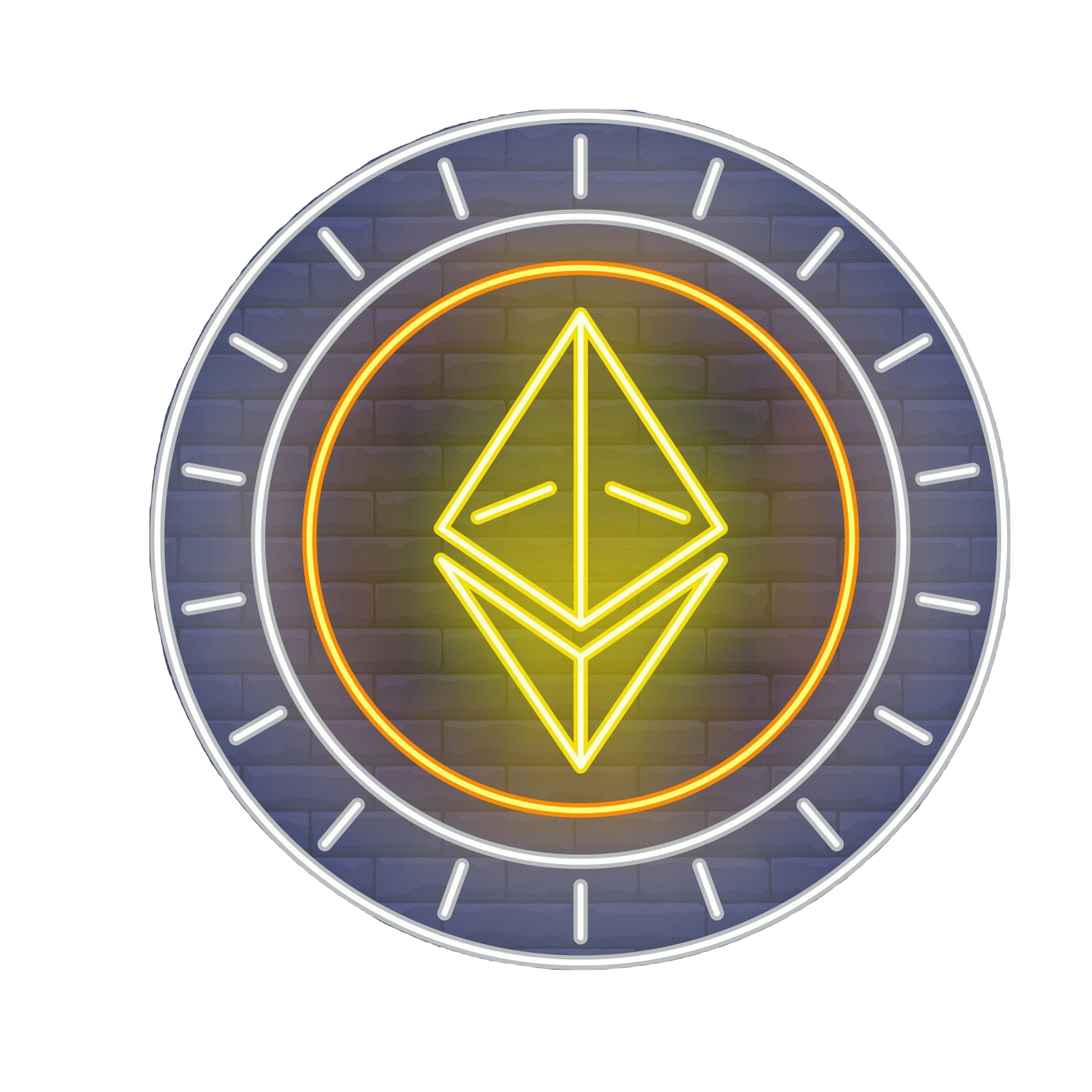Table of Contents
As Web3 continues to gain momentum, one name has consistently emerged as a key player in the blockchain infrastructure space: Infura. This platform has become a cornerstone for developers building decentralized applications (dApps) and interacting with blockchain networks, especially Ethereum. If you’re new to blockchain development or curious about how dApps communicate with decentralized networks, understanding Infura is essential.
In this article, we will explain what Infura is, its role in the Web3 ecosystem, how it works, and why it’s so crucial for developers.
What is Infura?
Infura is a blockchain infrastructure-as-a-service (IaaS) platform that provides developers with secure, reliable, and easy access to decentralized networks like Ethereum and IPFS. Developers can access these networks through Infura’s API suite, which simplifies the process of interacting with the blockchain allowing developers to focus more on the dApp’s functionality and less on infrastructure management.
Infura’s robust API suite eliminates the complexities of running and maintaining blockchain nodes. Developers can seamlessly interact with blockchain networks, deploy smart contracts, handle transactions, and integrate decentralized storage without the need for hardware. This makes Infura a critical bridge connecting decentralized applications (dApps), wallets, exchanges, and other blockchain projects to blockchain networks, ensuring scalability and efficiency.
For more information regarding Infura’s Products and Solutions, visit their official website.
Key Features of Infura

Let’s explore these features in more detail.
- Blockchain Infrastructure: Infura offers seamless access to major blockchain networks, including Ethereum, IPFS, and high-performing layer 2 networks. Developers no longer need to manage their own nodes or deal with hardware requirements, as Infura provides managed access to these networks, simplifying the interaction between dApps and blockchain technology. This allows teams to focus on product development instead of infrastructure maintenance.
- Ethereum API: With Infura’s Ethereum API, developers can connect their applications to the Ethereum blockchain with a simple line of code. This removes the need to set up and manage their own Ethereum nodes. By handling the infrastructure, Infura allows developers to build decentralized applications (dApps) or smart contract-based solutions without the technical overhead. The API offers secure and efficient interactions with Ethereum, enabling developers to send transactions, deploy contracts, and query blockchain data.
- IPFS Gateway: Infura also offers a gateway to the InterPlanetary File System (IPFS), a decentralized file storage network. This enhances the storage capabilities of dApps by providing an efficient and distributed way to store and retrieve files. The Infura IPFS gateway ensures high availability and scalability, making it easier for developers to integrate decentralized storage into their applications without the complexities of running an IPFS node.
- Scalability: Infura is designed to scale as your application grows. As your dApp attracts more users and generates more transactions, Infura automatically scales its infrastructure, eliminating the need for developers to manually handle node scaling. This allows teams to focus on building and expanding their products without worrying about maintaining infrastructure for growing traffic.
- High Availability: One of the key strengths of Infura is its high availability, ensuring a 99.9% uptime. This means decentralized applications relying on Infura can have stable and reliable connections to the blockchain networks they depend on. Whether you’re handling transactions or fetching data from the blockchain, Infura’s infrastructure ensures minimal downtime, keeping your dApp functional and responsive.
- Transaction Management: For Ethereum-based dApps, Infura offers Infura Transactions (ITX), a service that helps manage gas fees and transaction submissions. ITX dynamically adjusts gas prices to ensure your transactions are processed efficiently, even during times of network congestion. This feature saves developers time and helps ensure that critical transactions are submitted with the optimal gas price, avoiding costly delays or failures.
- Failover Support for APIs: For enhanced reliability, Infura offers failover support on certain networks for customers on Growth or Custom plans. If one of Infura’s API endpoints becomes unavailable, requests can be forwarded to a partner service to fulfill the request, ensuring that your application remains online and provides uninterrupted service to its users.
- Archive Data Querying: Infura’s Ethereum API offers the ability to query historical state data at any block height. This feature is invaluable for developers needing to access detailed historical data, such as past transactions, smart contract states, or balance information. This makes Infura an excellent choice for developers building data-driven applications or conducting in-depth analyses of blockchain data.
- Expansion APIs: Infura also supports multi-chain expansion, including its Gas API, which is used by wallets like MetaMask to analyze and optimize gas costs on EIP-1559 compatible chains. By integrating Infura’s Gas API, developers can optimize gas fees and make cost-effective decisions for their dApps, further enhancing the user experience by reducing transaction costs and delays.
Infura has become the go-to solution for many blockchain developers looking for a cost-effective and scalable way to interact with the Ethereum network and store data on IPFS.
Why Developers Choose Infura?
Managed Infrastructure: Infura handles all aspects of node setup, maintenance, and scaling, enabling developers to focus on building their dApps instead of managing infrastructure.
Cost-Effective: Developers save on hardware, bandwidth, and operational costs by using Infura’s services rather than maintaining their own blockchain nodes.
Scalability: Infura’s infrastructure scales automatically as applications grow, ensuring seamless performance regardless of transaction volume.
High Availability: Infura offers 99.9% uptime, providing reliable connections to Ethereum and IPFS, which is essential for the smooth operation of dApps.
Comprehensive API Suite: Infura provides APIs that allow developers to easily connect to Ethereum, IPFS, and other decentralized networks with minimal effort.
- Real-time and Historical Data:
Developers can query blockchain data in real-time or access historical state data for deeper analyses. - IPFS Gateway:
Infura offers a gateway to the decentralized file storage system, IPFS, improving dApp storage solutions. - Gas API:
Infura’s Gas API, used by MetaMask, helps developers analyze and optimize gas fees on Ethereum and EIP-1559 compatible chains.
Multi-Chain Support: Infura supports major blockchain networks and layer-2 solutions, giving developers flexibility in choosing the right network for their dApps.
Reduced Technical Overhead: With Infura’s managed services, developers can avoid the technical complexities of running nodes, ensuring faster deployment and maintenance of dApps.
Focus on Innovation: Infura allows developers to dedicate more time to innovating and building feature-rich applications rather than worrying about blockchain infrastructure.
How Infura Works
Infura operates by offering a suite of APIs that provide seamless access to Ethereum and IPFS. These APIs allow developers to interact with decentralized networks without running their own nodes, eliminating the need for DevOps teams and site reliability engineers. Let’s break down how Infura works, particularly in relation to its Ethereum and IPFS APIs.

Ethereum API
The Ethereum API allows developers to interact with Ethereum nodes without needing to host one themselves. This is a game-changer for developers building dApps on Ethereum because it saves time and reduces costs.
- Instant Access to Ethereum: With a simple line of code, developers can connect to Ethereum, making it incredibly easy to start building and testing applications.
- Real-Time Data: Infura provides access to real-time blockchain data, enabling developers to monitor and execute transactions, query the blockchain, and deploy smart contracts.
- Compatibility: Infura’s Ethereum API supports standard Ethereum JSON-RPC methods, making it compatible with popular development libraries such as Web3.js and Ethers.js.
- High Availability: Infura ensures that its Ethereum API is always up-to-date with the latest network upgrades and offers 99.9% uptime, so dApps can operate reliably.

IPFS API
Infura also provides access to IPFS, a decentralized file storage and sharing system. IPFS is crucial for decentralized applications that require distributed, immutable storage. Through its API, Infura allows developers to store and retrieve files from IPFS without needing to set up their own IPFS node.
- Scalability: Infura scales the IPFS infrastructure automatically based on your application’s needs, making it easier to manage large amounts of data.
- High Performance: Infura’s IPFS gateway ensures fast and reliable access to IPFS content, even as your application grows.
- Simple Setup: The IPFS API is designed to work seamlessly with libraries like
go-ipfsandjs-ipfs, so developers can integrate decentralized storage into their applications with minimal effort.
Benefits of Using Infura
1. Focus on Product Development
Infura allows developers to concentrate on building their applications rather than spending time managing infrastructure. With a simple API call, developers can connect to Ethereum and IPFS, eliminating the need for manual node setup and maintenance. This allows developers to focus on improving their product and refining the user experience.
2. Scalability
One of Infura’s strongest selling points is its scalability. Whether you’re working on a small dApp or a large-scale application with thousands of users, Infura’s infrastructure scales dynamically to meet your needs. You don’t have to worry about performance degradation or infrastructure bottlenecks, as Infura ensures your application can handle increasing traffic and transactions.
3. Cost-Effective
Running your own Ethereum node or IPFS gateway is expensive. You need powerful hardware, high storage capacity, and plenty of bandwidth to keep your node synced with the blockchain. Infura eliminates these costs by offering a pay-as-you-go pricing model, where you only pay for the services you use. This makes Infura a cost-effective solution for developers of all sizes.
4. Simpler Transaction Management
Infura offers a service called Infura Transactions (ITX), which helps developers manage Ethereum transactions more efficiently. ITX handles gas prices and ensures that transactions are completed even if they require higher gas fees due to network congestion. This removes the burden of manually managing gas fees, making it easier for developers to build applications that involve frequent transactions.
5. Monitoring and Analytics
Infura provides an interactive dashboard that allows developers to monitor their dApp’s performance in real-time. This dashboard provides insights into API usage, transaction metrics, and other important data that can help optimize application performance. Developers can also use this data to better understand user behavior and improve the overall user experience.
6. Layer 2 Solutions
Infura supports Layer 2 networks like Polygon, Arbitrum Rollup, and Optimistic Ethereum, which are designed to alleviate the congestion issues on Ethereum by processing transactions off-chain. These Layer 2 solutions reduce gas fees and transaction times, making dApps more scalable and user-friendly.
Conclusion
Infura has cemented its place as a leading infrastructure provider in the blockchain ecosystem, offering developers a streamlined and cost-effective way to connect with Ethereum, IPFS, and other decentralized networks. Its robust API suite simplifies the complexities of blockchain development, providing high availability and scalability, which are essential for building successful decentralized applications.
Whether you’re a seasoned blockchain developer or just starting out, Infura delivers the reliable infrastructure needed to create scalable, secure, and efficient dApps. As Web3 continues to evolve, Infura’s role will only grow in importance, driving the accessibility and adoption of decentralized technologies for developers and users alike.
In essence, Infura is more than just an infrastructure provider—it’s the foundation on which Web3 innovation is built. By taking care of the technical complexities, it allows developers to focus on what truly matters: shaping the future of decentralized applications and the broader Web3 ecosystem.
FAQs
What is Infura used for?
Infura is primarily used by developers to connect their applications to the Ethereum and IPFS networks without the need to run and maintain their own nodes. It provides a reliable API that allows for sending transactions, deploying smart contracts, and retrieving blockchain data efficiently, streamlining the development process for decentralized applications (dApps).
Why does MetaMask use Infura?
MetaMask uses Infura to facilitate seamless connectivity to the Ethereum blockchain for its users. This integration allows MetaM ask users to check their balances, send transactions, and interact with various decentralized applications (dApps) without the overhead of running their own Ethereum nodes, enhancing user experience and accessibility.
Is Infura a node provider?
Yes, Infura is a prominent node provider that offers developers access to Ethereum and IPFS nodes through a robust API. This service eliminates the complexities associated with node management, enabling developers to focus on building their applications while Infura handles the infrastructure required for blockchain interactions.
What is Infura and Alchemy?
Infura and Alchemy are both leading blockchain infrastructure providers that offer APIs to connect developers with Ethereum and other blockchain networks. While Infura emphasizes reliable access and simplicity for developers, Alchemy provides a broader suite of tools, including monitoring, analytics, and debugging capabilities, making it easier for developers to optimize and manage their blockchain applications.
